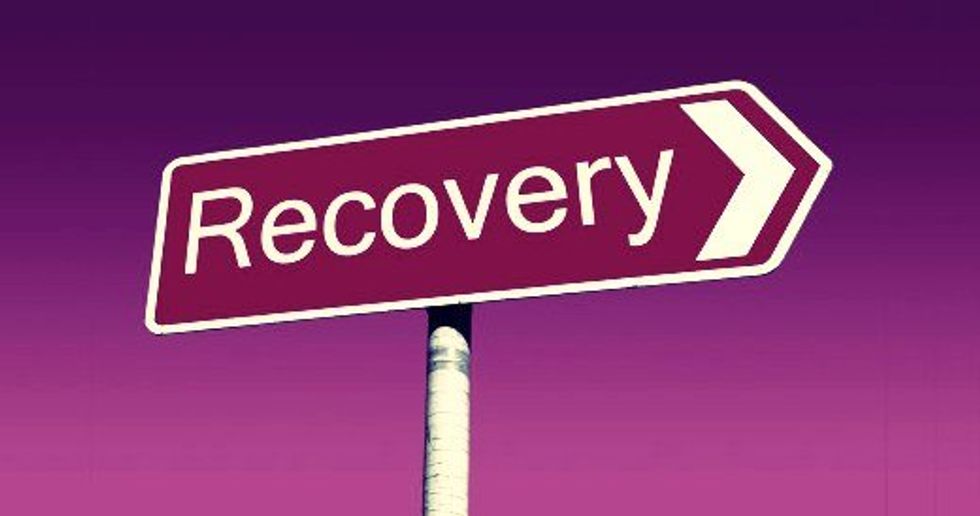I've written two other articles about eating disorders and my personal experience with anorexia, and you can find them here and here.
Part 3 has been hard to write. Not because I have exhausted my ability to talk about eating disorders, not because I'm beating a dead horse, but because they are such complex illnesses punctuated by other mental illnesses such as depression and anxiety, recovery is not linear and certainly not easy, and I'm only writing from the perspective of one young woman: myself. Which is difficult for a number of reasons, namely because it involves admitting things I sometimes don't want to admit to myself, let alone my family, friends, and the world. Yet it's therapeutic; it helps me and it helps others. Within hours of my previous articles on the subject being published, I received messages of support but also of thanks and of hope. Countless people have shared their stories with me as a result of my own publication, and have told me they're now looking into seeking help.
Someone asked me once why I was so public about having an eating disorder and my journey through recovery, and I thought back to those moments, those messages. I thought about the girls I knew and the girls who were strangers that reached out to me, thanking me for showing them that they are not alone and that recovery is possible. Why would I be silent when I could act, in any small way possible, to ease someone else's suffering? I spent years alone with this burden and I want to lighten the load for someone else. Mental illness has a strange taboo surrounding it, as if we're not supposed to talk about it except in cases sensationalized and even glamorized by the media.
But recovery, as hard and draining as it is, should be a celebration. That's the way I like to look at it. On the worst days I regret asking for help, thinking it would have been easier to continue living the half life I thought was fulfilling. Then I look at where I am compared to where I was; my smiles are wider, my eyes are brighter, and I'm so much stronger, physically and spiritually. That's something to celebrate, and I want to share that with those I love.So yeah, I'm going to continue talking about it, because it's important to me and it's important to others.
Some people seem to think that recovery means that you're magically cured and all is well.
That's not true.
Recovery does not mean recovered. It's a long and arduous journey that can take years. I'm not an anorexic, no, but I'm not a former anorexic either. I'm a recovering anorexic, present tense. I've made the mistake of thinking I was fully healthy, when I had a few good days or even weeks in a row, where I ate three or more healthy meals a day and didn't let negative thoughts enter my mind. Then I find myself collapsing in a puddle of tears because I wore shorts and noticed how my thighs expanded when I sat down, or because my stomach protruded a little more than usual after a meal, or because I saw a picture of a girl skinnier and prettier than me and every insecurity came flooding back into my mind. These are the days when I realize my journey is far from being over.
Like I said, recovery is not linear. There are ups and downs, curves and twists, and some days you might find yourself closer to where you started than where you were just the day before.
This is normal. If you're recovering from an eating disorder don't let the bad days cancel out all the good days. Don't think that you're a failure, or that you're letting down everyone who believes in your ability to get better. They don't expect you to recover in a week or even a month.
These things take time, and even though I'm tired of hearing those words because I'm impatient beyond belief, I've come to realize that they're true.
So take your time and recover at your own pace.
If I tried to say I didn't always respond to situations with all my emotions everyone who knew me in high school would laugh in my face. Granted I was struggling with anorexia so my emotional breakdowns before, during, and after school in various classrooms to a myriad of people is understandable (now).
However, this has actually gotten worse for me during recovery. My fuse is shorter at times because I'm pouring so much energy into being healthy in terms of eating, as well as managing my depression and anxiety. I breakdown faster and lash out harder. My boyfriend bears the brunt of this, as does my family. It's not fair to them and I know it, I know it as it's happening, but I don't have the energy to stop myself.
Peculiar, isn't it? Not having the energy to stop yourself from doing something. Usually it's the other way around, not having the energy to do something. But in this case, it allows me to redirect my emotions surrounding my body and the recovery process onto something more mundane. I get to yell and cry it out without addressing the real issue. They don't know that, they don't know what's happening in my head.
It's something I want them to know that I'm working on. I don't want to use any illness as an excuse or a crutch, but in fairness to me, I have a lot weighing on my mind (pun not intended). Of course everyone has their own set of issues, and I in turn should be respectful and understanding of that. And like I said, I'm not using my illness as an excuse, but it's something I've shared with them that can illuminate the cause of some of my reactions.
I've written in previous articles that those with a loved one suffering should be careful not to let their illness define their identity. Anorexia or bulimia or any mental illness is not the person's sole characteristic. This doesn't mean, however, that their illness should be forgotten. You're loving a person who doesn't always possess the ability to love themselves. Keep in mind that they're doing everything they can to keep it together, even when doing so was what destroyed them in the first place.
"Some days are harder than others," is my answer when people ask me how I'm doing with regards to recovery, and seems to be the sentiment of this article.
So that's where I am in my recovery process, sometimes here, sometimes there. And it is a process, for me and for the people in my life who learn and love with me. I have never once felt completely alone during this journey, have never once felt a lack of support.
For all of those suffering with an eating disorder, remember that you do not have to be alone during this process. Whether you still have yet to admit to your problem and ask for help or are well underway into recovery, you have a support network behind you.
And though these are another set of words I hate hearing, it will be OK.





















